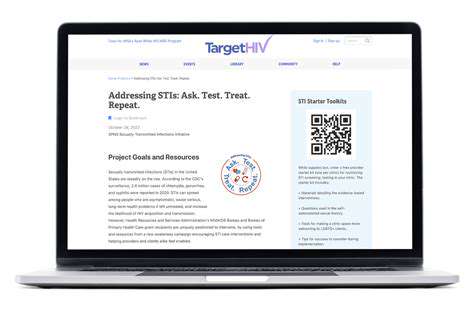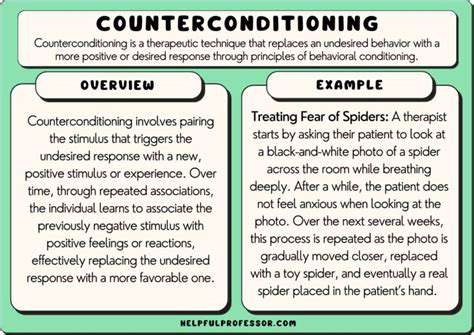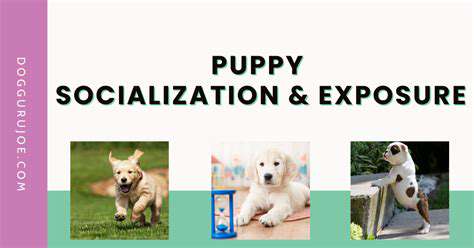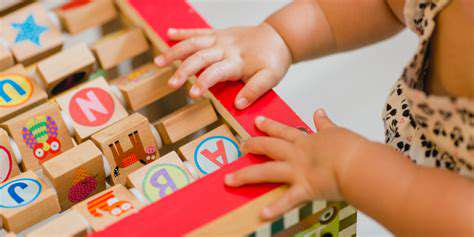The Breeder's Role in Early Puppy Socialization
Early Exposure to Diverse Stimuli: Building Resilience
Enriching the Sensory Environment
Introducing puppies to diverse sensory experiences, including varied textures, sounds, sights, and smells, plays a pivotal role in nervous system development. These experiences create the foundation for effective information processing. A stimulating sensory environment helps young dogs distinguish between different stimuli, enhancing their adaptability for future challenges.
Exposing puppies to various visual elements - from patterns and colors to different shapes - sharpens their visual perception. Similarly, introducing diverse textures (smooth, rough, or bumpy) develops their tactile sensitivity. These experiences foster neural growth, leading to more sophisticated sensory interpretation.
Promoting Social Interaction
Early socialization significantly contributes to emotional resilience and social skill development. When puppies interact with diverse companions through play and gentle competition, they learn appropriate social behaviors and communication techniques. Exposure to dogs of different ages and temperaments provides invaluable social learning experiences.
Regular positive interactions help puppies develop confidence and a sense of belonging. This foundation proves essential for navigating complex social situations later in life, directly impacting their psychological health and resilience.
Managing Stressful Events
While excessive stress should be avoided, controlled exposure to mild stressors builds important coping skills. Brief separations or new environments, when introduced gradually, help puppies develop stress management strategies. This controlled exposure teaches puppies to adapt and regulate their emotional responses effectively.
Close monitoring is essential during these experiences. If stress becomes overwhelming, immediate intervention ensures puppies learn they can successfully overcome challenges - a crucial aspect of resilience building.
Introducing Novel Environments
Varied environmental exposure, both indoor and outdoor, enhances adaptability and cognitive flexibility. Exploring new spaces and landscapes broadens puppies' experiences and stimulates curiosity. This exposure improves spatial awareness and problem-solving abilities.
Introducing new toys and objects in a structured manner encourages exploration. Such stimulation promotes brain development and fosters willingness to adapt to new situations.
Encouraging Physical Activity
Regular exercise contributes significantly to both physical and mental resilience. Play and movement develop muscle strength, coordination, and balance. Physical activity triggers endorphin release, enhancing mood and overall wellbeing.
Diverse activities like running, jumping, and climbing build physical endurance. An active puppy demonstrates better stress management and maintains superior psychological health.
Nutritional Support for Developing Brains
A balanced diet is fundamental for proper nervous system development and resilience building. High-quality protein, essential fatty acids, vitamins, and minerals are critical for optimal brain cell growth and cognitive function.
Age-appropriate nutrition ensures proper neurological development, directly influencing a puppy's ability to handle challenges and stress effectively.
Positive Reinforcement and Puppy Development: Crucial Partnership
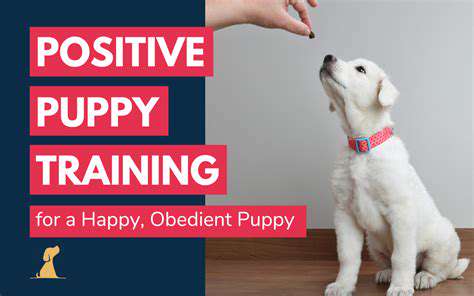
Positive Reinforcement Training for Puppies
Reward-based training methods create strong, positive relationships between owners and puppies. This approach emphasizes rewarding good behavior rather than punishing mistakes. It builds trust and makes training enjoyable for both parties. Consistency proves vital - regular practice with uniform commands accelerates learning.
The psychology behind positive reinforcement is straightforward: immediate rewards for desired actions strengthen behavior patterns. This method avoids negative associations that could potentially hinder development. Focusing on successes builds confidence and positive learning attitudes.
Effective Rewards and Motivators
Selecting appropriate rewards is key to successful training. Treats, toys, and praise all serve as potential motivators, but individual preferences vary. Some puppies respond best to food rewards, while others prefer play or affection. Moderation is important with food rewards to prevent overeating.
Verbal praise and physical affection significantly reinforce good behavior. Positive reinforcement isn't just about treats - it's about creating a supportive learning environment. Enthusiastic praise combined with gentle petting strengthens the human-puppy bond.
Puppy Development and Training Schedules
Training should align with developmental stages. Puppies learn at different paces, so avoid overwhelming them. Start with brief sessions, gradually increasing duration as skills develop. Consistent scheduling significantly improves learning outcomes.
Structured environments with predictable routines help puppies understand boundaries. Regular schedules for feeding, play, and training provide security. This predictability fosters calm, confident behavior and makes identifying behavioral changes easier.
Read more about The Breeder's Role in Early Puppy Socialization
Hot Recommendations
- The Impact of Early Socialization on a Dog's Interaction with Other Animals
- Car Travel and Puppy Socialization: Making the Journey a Positive Experience
- The Importance of Early Environmental Exposure for Puppy Development
- Taking Your Puppy to the Vet: Positive Socialization Strategies
- Making Training a Positive Experience for Your Puppy
- Public Transportation and Puppy Socialization: A Step by Step Guide
- Safe Socialization: Allowing Others to Pet Your Puppy
- Helping a Puppy Who Struggles with "Stay"
- Positive Puppy Interactions: Making Meetings with New Friends Fun
- No Treats Needed? Training Basic Commands with Verbal Praise



